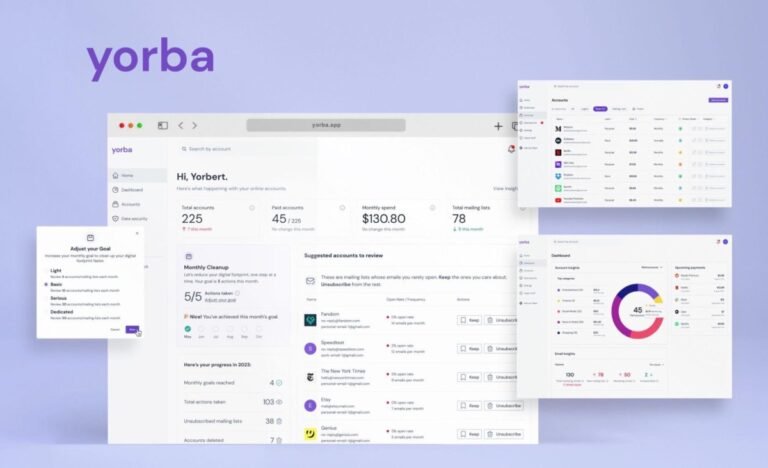
The Federal Trade Commission (FTC) on Thursday said it will ban the antivirus giant Avast from selling consumers’ web browsing data to advertisers after Avast claimed its products would prevent its users from online tracking.
Avast also settled the federal regulator’s charges for $16.5 million, which the FTC said will provide redress for Avast’s users whose sensitive browsing data was improperly sold on to ad giants and data brokers.
But the FTC alleged that Avast sold consumers’ browsing data through its now-shuttered subsidiary, Jumpshot, to more than a hundred other companies, making Avast tens of millions of dollars in revenue.
The regulator said that the browsing data that Jumpshot sold revealed consumers’ religious beliefs, health concerns, political leanings, their location, and other sensitive information.
The reports found Jumpshot was also selling access to its users’ click data, including the specific web links that its users were clicking on.

Spend enough time online, and you’ll collect a digital paper trail of accounts, logins, subscriptions, mailing lists, and passwords wrapped up in data breaches.
From its web-based dashboard, you can organize, monitor, and manage your online accounts, unsubscribe from mailing lists, cancel subscriptions, review privacy policies, and more.
The end result is something like a Mint for your entire online life, so to speak.
Instead, it works by connecting with your online accounts, like your Gmail, and soon other online services and cloud storage providers.
Some of the functionality Yorba offers may not be unique.

Rashida Richardson, senior counsel, AI at MastercardBriefly, how did you get your start in AI?
On the second point, law and policy regarding AI development and use is evolving.
How can investors better push for responsible AI?
Investors can do a better job at defining or at least clarifying what constitutes responsible AI development or use, and taking action when AI actor’s practices do not align.
Currently, “responsible” or “trustworthy” AI are effectively marketing terms because there are no clear standards to evaluate AI actor practices.

What then followed, last fall, was a claim from Meta that it would be switching to a consent basis for tracking.
Facebook and Instagram users who wish to continue to get free access to the services have to “consent” to its tracking — which Meta claims is valid consent under the bloc’s General Data Protection Regulation (GDPR).
Withdrawing consent in the scenario Meta has devised requires users to sign up for a monthly subscription.
So noyb’s follow-up complaint targets the inherent friction in Meta charging users money to protect their privacy.
However, by then, Meta had already shifted its claimed basis to consent, meaning it could just sidestep the regulatory intervention.

Zoe Care is taking a different approach, by using existing Wi-Fi signals (and the way our bodies change how Wi-Fi reception works) to detect humans and their activities.
Using Wi-Fi signals is a pretty cool, non-intrusive solution that addresses the key issues of privacy and ease of use that often plague conventional remote monitoring technologies.
The device doubles as a smart plug, and uses a sensor to gather and analyze Wi-Fi signals.
If a fall is detected, these signals are translated into alerts on a mobile application.
The fall detector will be offered as a subscription service, around $20-25 per month in the U.S.,” says Piotr Antonik, co-founder and CTO at Zoe Care.

The convergence of Big Tech, finance, and government has enabled a new data economy.
The first movement in the megacycle was the General Data Protection Regulation (GDPR) when the EU championed data privacy in 2016.
Brazil stepped up and created comparative data privacy rights and is investing heavily in data infrastructure and regulation to enable citizens to capitalize on their personal data.
Data privacy will evolve into data ownership rights in 2024Our data could power an entirely new data economy that could benefit every person who participates in it or not, based on their decision-making.
The next tech megacycle — one in which everyday citizens worldwide own and control their personal data that powers AI — began about a year before the global COVID pandemic.

As Brian, Mary Ann and Zack wrote earlier this week, we lost a lot of startups in 2023, but honestly, I don’t think that’s a bad thing.
Startups aren’t meant to last forever — they either evolve into a fully fledged corporation with a growth trajectory, or they cease existing altogether.
A tale of two pedalsTim Stevens did a deep dive, comparing the various driver assist systems currently on the market.
The EV free-for-all (except not free): EV fast-charging networks are bracing for a turbulent 2024 as they grapple with Tesla’s expanding Supercharger dominance.
: The New York Times is suing OpenAI and Microsoft, alleging they trained AI models on Times’ content without permission.

In search of one, they founded Giga ML, a startup building a platform that lets companies deploy LLMs on-premise — ostensibly cutting costs and preserving privacy in the process.
“Giga ML addresses both of these challenges.”Giga ML offers its own set of LLMs, the “X1 series,” for tasks like generating code and answering common customer questions (e.g.
But it’s tough to say how X1 compares qualitatively; this reporter tried Giga ML’s online demo but ran into technical issues.
Even if Giga ML’s models are superior in some aspects, though, can they really make a splash in the ocean of open source, offline LLMs?
“Giga ML’s mission is to help enterprises safely and efficiently deploy LLMs on their own on-premises infrastructure or virtual private cloud,” Vummadi said.

The bill also mandates biometric verification for subscribers and restricts the number of SIM cards each subscriber uses to limit fraud.
The legacy of the old scammers in the telecom sector will be left behind, and arrangements will be made through this bill to make the telecom sector a sunrise sector,” Ashwini Vaishnaw, the Indian telecom minister, said while introducing the bill in the parliament.
Interestingly, the telecom bill excludes the term “OTT,” available in its initial draft last year, indicating regulations for over-the-top (OTT) messaging apps such as WhatsApp, Signal, and Telegram.
“The bill is regressive as it enhances the government’s colonial-era powers to intercept communications and shut down the internet.
It undermines end-to-end encryption, which is crucial for privacy,” said Namrata Maheshwari, Asia Pacific Policy Counsel at Access Now, in a prepared statement.

But this year, give the gift of good security (and privacy) and eschew tech that can have untoward risks or repercussions.
Location data is some of the most sensitive data belonging to a person; location can determine where someone was at a particular time, which can be highly revealing and invasive.
Even one of the better-known family tracking apps, Life360, was caught selling the precise location data of its users to data brokers.
There’s no reason why you shouldn’t discuss the benefits and pitfalls of tracking your kids with your kids.
And this year, another smart sex-toy maker exposed the user and location data of its customers thanks to its leaky servers, which the company has yet to fix.













